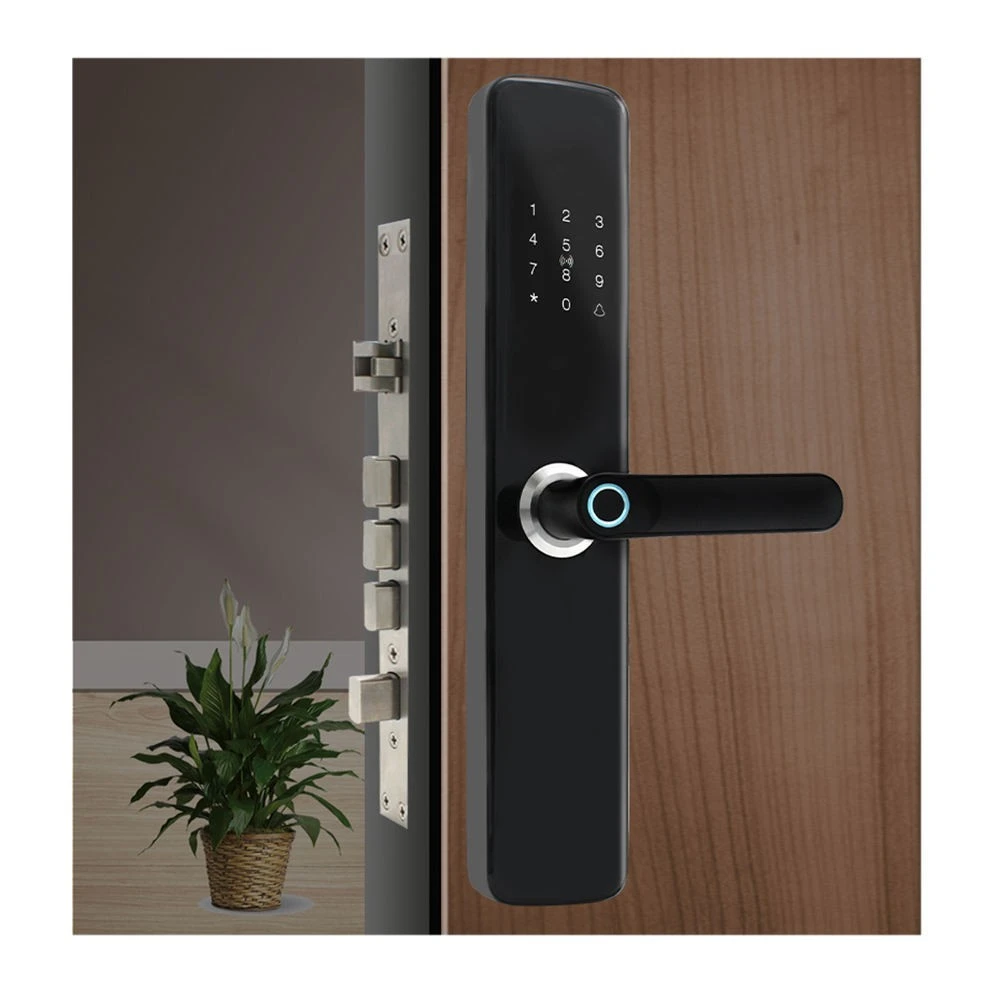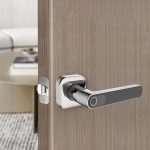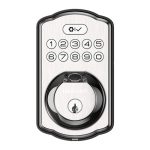As technology continues to evolve, home security has significantly improved. Traditional locks are becoming less popular, while advanced solutions like fingerprint door locks gain traction. These locks offer a convenient method of protecting your home. By utilizing unique biometric data, they enhance both security and ease of use. This article will explore the key features, benefits, and considerations of fingerprint door locks.
Understanding Fingerprint Door Locks
Fingerprint door locks operate using biometric technology. They scan and verify an individual’s unique fingerprint for access. Unlike traditional locks, they don’t require keys. Instead, users register their fingerprints in the lock’s system. When someone places their finger on the scanner, the device compares it to stored fingerprints. If it matches, the lock disengages, granting access. This process is quick, often taking only seconds.
How Fingerprint Scanners Work
Fingerprint scanners use various technologies to identify fingerprints. Capacitive scanners, for example, rely on electrical signals. These signals are generated when a finger makes contact with the sensor. Each fingerprint has unique ridges and valleys. The scanner detects these patterns, converting them into a digital format. This data is then compared with stored fingerprints.
Another technology is optical scanning. Here, a camera captures the image of a fingerprint. Specialized algorithms then analyze the fingerprint’s features for identification. While both technologies are effective, capacitive scanners are often considered more secure. This is due to their ability to generate a three-dimensional representation of the fingerprint. Understanding these technologies helps users choose the best fingerprint lock for their needs.
Benefits of Fingerprint Door Locks
Fingerprint door locks offer numerous benefits over traditional locking mechanisms. First and foremost, they provide enhanced security. Because each fingerprint is unique, they are nearly impossible to replicate. This makes unauthorized access extremely difficult. Additionally, users no longer need to manage keys. Misplaced or lost keys are not a concern with fingerprint locks. This means that homeowners can avoid the hassle of rekeying.
Furthermore, biometric locks allow for multiple users. You can easily register family members or trusted individuals in the system. This feature is especially beneficial for large families or shared accommodations. It eliminates the need for spare keys, which can be a security risk. Many fingerprint locks also have audit trails. This allows users to monitor who accessed the lock and when. Such features provide peace of mind for anyone concerned about home security.
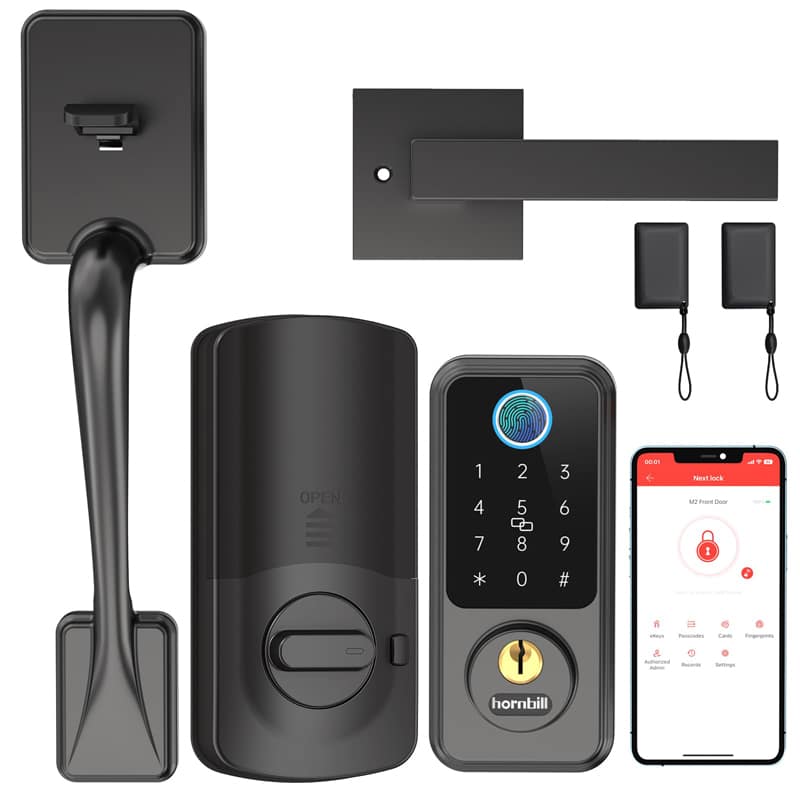
Choosing the Right Fingerprint Lock
Selecting the ideal fingerprint door lock involves several considerations. You should evaluate your security needs first. Different locks offer various levels of security, so be informed. Additionally, consider the type of fingerprint technology offered. Some locks prioritize speed, while others focus on accuracy. Ultimately, the lock you select should align with your personal requirements.
Features to Look For
When shopping for a fingerprint door lock, ensure it has a user-friendly interface. Many models are available with touchscreen displays and LED indicators. These features simplify the registration and unlocking process. Additionally, check for backup access methods. Some locks include keypads or physical keys for emergencies. This dual access offers an added layer of security and convenience.
Another significant consideration is the lock’s durability. Ensure you choose a model constructed from robust materials. A solid build will withstand wear and tear over time. Look for features like weather resistance if you live in harsh climates. A lock that can endure the elements will enhance your long-term investment.
Installation Process
The installation process of fingerprint door locks can vary. However, most models offer simplified installation instructions. Because many locks come suited for standard doors, installation is typically straightforward. Most people can handle it without contractor assistance or specialized tools. It will likely involve removing your existing lock and attaching the new one.
You must follow the manufacturer’s guidelines carefully during installation. Ensuring proper alignment with the door frame is essential for security. Misalignment could lead to vulnerabilities, so pay close attention. If you’re unsure or lack the necessary tools, consider hiring a professional. Nonetheless, the DIY installation option is an attractive feature for many homeowners.
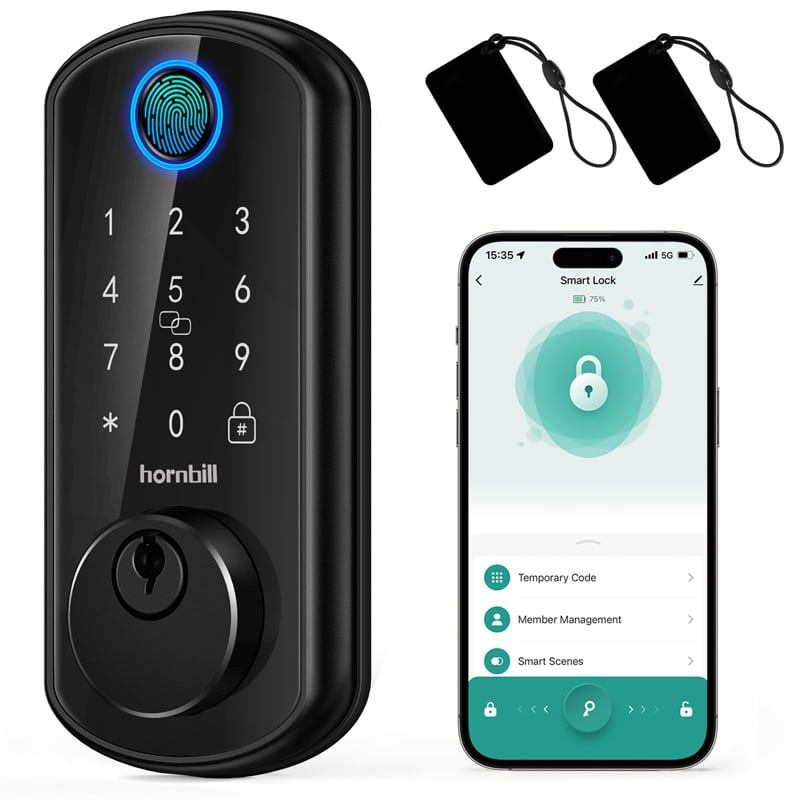
Maintenance of Fingerprint Door Locks
Maintaining fingerprint door locks is crucial for ensuring their longevity. Regular upkeep will help maintain performance. Start by cleaning the fingerprint scanner periodically. Dust and grime can compromise accuracy over time. Use a soft cloth and mild cleaner to wipe the scanner surface. Avoid abrasive materials that could scratch the sensor.
Battery Management
Most fingerprint door locks are powered by batteries. As such, managing battery life is essential. Pay close attention to low battery indicators. Addressing battery-related issues promptly is crucial. By doing so, you can avoid lock malfunctions at inopportune times. Investing in high-quality batteries can prolong the lifespan of your fingerprint lock.
In addition, some locks come with a backup power source. This may involve an external battery pack or a USB port for manual charging. Familiarize yourself with your lock’s features to ensure you’re prepared. Regularly checking and replacing batteries will provide peace of mind over time.
Troubleshooting Common Issues
Occasionally, users may encounter issues with their fingerprint door locks. One common problem is the lock failing to recognize a registered fingerprint. This can occur for various reasons, including dirt buildup or changes in skin condition. If this happens, first clean the scanner and ensure your finger is dry.
If recognition issues persist, consider re-registering the fingerprint. This will help improve accuracy and ensure functionality. Additionally, ensure the lock is properly aligned and securely installed. Regular maintenance will typically resolve most issues, allowing for smooth performance.
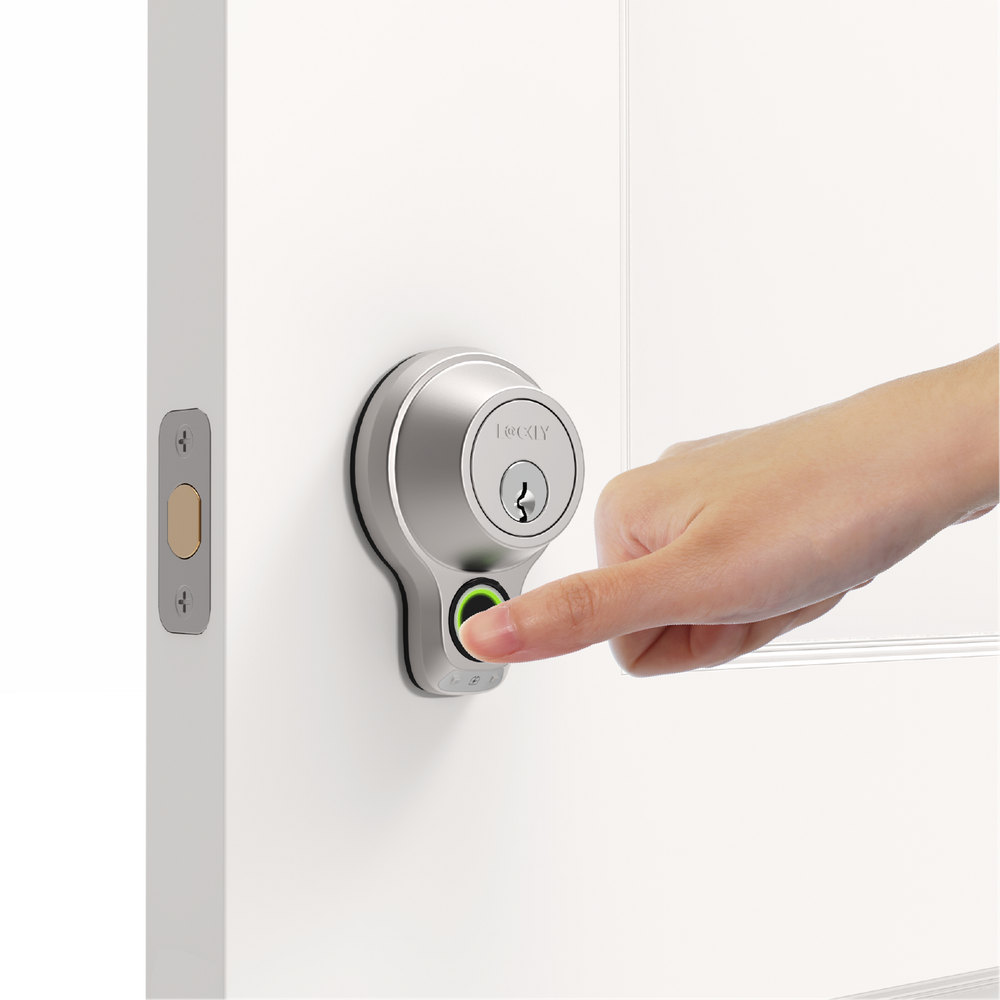
Security Considerations
While fingerprint door locks offer enhanced security, they are not entirely flawless. Understanding potential vulnerabilities is vital for users. Biometric data, like fingerprints, is unique, but it can still be compromised. Improper installation or low-quality devices can introduce risks. Therefore, always research manufacturers’ reputations before purchase.
To further safeguard your home, consider additional security measures. Always ensure your fingerprint lock has strong encryption. Encrypted data can deter unauthorized access attempts. Opt for locks that require a combination of authentication methods—such as fingerprints and PIN codes. This will enhance security by providing multiple layers of protection.
Another good practice is to regularly update the lock’s firmware, if applicable. Manufacturers often release updates to address security vulnerabilities. Keeping your device up-to-date is crucial for maintaining efficiency. By remaining vigilant, you can maximize the efficacy of your fingerprint door lock.
Smart Features for Enhanced Security
Today’s fingerprint locks often offer smart features as well. Many models can be integrated with home automation systems. This allows you to monitor and control access remotely. Such integration can notify homeowners about unauthorized attempts to access the lock. Enhanced alert systems can provide peace of mind.
Additionally, some advanced locks can provide temporary access codes. This is particularly useful for guests or service providers. Once access is no longer needed, you can revoke permissions. This level of control is not achievable with traditional key locks. Therefore, integrating smart technology can make fingerprint locks even more advantageous.
Key Features to Consider
When choosing a fingerprint door lock, it is essential to look for key features that meet your needs. The market offers a variety of locks with different functionalities. Thus, understanding which features are most relevant will aid buyers in their decision-making process.
Durability and Weather Resistance
One of the first factors to consider is the lock’s durability. A fingerprint door lock should withstand outdoor conditions if placed on an exterior door. Weather resistance helps prevent malfunctions caused by rain, snow, or extreme temperatures. Many manufacturers offer locks made from materials that are specifically designed to combat corrosion and wear.
Battery Life and Power Sources
Another feature to examine is battery life. Most fingerprint locks operate on batteries. Therefore, checking the battery longevity is crucial. Some advanced models also provide backup power options, such as USB charging. This ensures that users have access even when battery levels are low. Regularly monitoring the battery status can prevent surprises and maintain home security effectively.
Conclusion
Fingerprint door locks represent a significant advancement in home security technology. By using biometric data, these locks enhance safety and convenience. Their ease of use and access management features make them ideal for families and shared households alike.
When selecting a lock, remember the features that matter most. Prioritize user-friendliness, durability, and smart technologies. Proper installation and regular maintenance will ensure lasting performance. Additionally, understanding security considerations will allow you to maximize your lock’s effectiveness.
Adopting this technology also opens the door to new possibilities for your home. Embrace the advantages of fingerprint door locks for a secure, keyless future. With the right choice, you can enjoy peace of mind knowing your home is protected.
